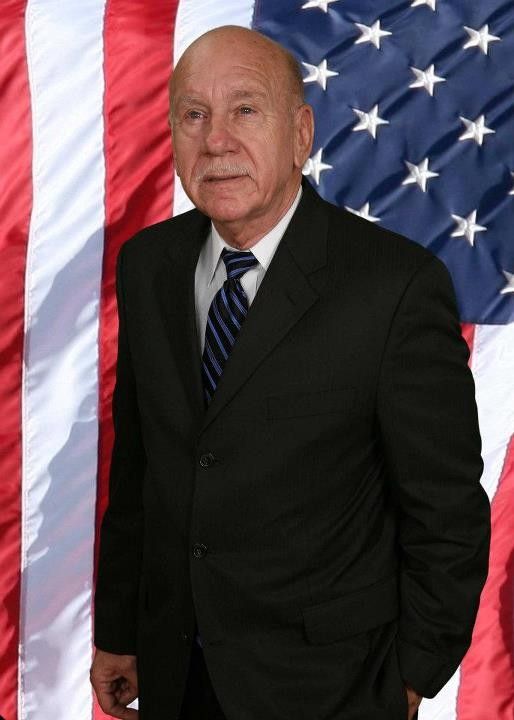http://usgovinfo.about.com/od/rightsandfreedoms/a/federalism.htm
The United States Constitution establishes a government based on “federalism” — a hierarchical system of government under which two levels of government exercise a range of control over the same geographic area. This system of shared control is the opposite of “centralized” forms of governments, such as those in England and France, under which the national government maintains exclusive power.
In the case of the United States, federalism is the sharing of powers between the U.S.
In general, the Constitution grants those powers needed to deal with issues of overarching national concern exclusively to the U.S. federal government, while the state governments are granted powers to deal with issues pertaining to issues affecting the particular state only.
All laws, regulations and policies enacted by the federal government must fall within one of the powers specifically granted to it in the Constitution. For example, the federal government’s powers to levy taxes, mint money, declare war, establish post offices, and punish piracy at sea are all enumerated in Article I, Section 8 of the Constitution.
In addition, the federal government claims the power pass many diverse laws – such as those regulating the sale of guns and tobacco products – under the Commerce Clause of the Constitution, granting it the power, “To regulate Commerce with foreign Nations, and among the several States, and with the Indian Tribes.”
Basically, the Commerce Clause allows the federal government to pass laws dealing in any way with the transportation of goods and services between state lines but no power to regulate commerce that takes place entirely within a single state.
The extent of the powers granted to the federal government depends on how the pertinent sections of the Constitution are interpreted by the U.S. Supreme Court.
Where the States Get Their Powers
The states draw their powers under our system of federalism from the Tenth Amendment of the Constitution, which grants them all powers not specifically granted to the federal government, nor forbidden to them by the Constitution.
For example, while the Constitution grants the federal government the power to levy taxes, state and local governments may also levy taxes, because the Constitution does not prohibit them from doing so. In general, state governments have the power to regulated issues of local concern, such as drivers’ licenses, public school policy, and non-federal road construction and maintenance.
Does the Federal Government have complete control over the States?
https://constitutionmythbuster.com/2011/04/25/does-the-federal-government-have-complete-control-over-the-states/
The Myths
The Federal Government has complete control over the States. The States must comply with all laws passed by the US Congress.
The Federal Government can own and control land inside of a State and determine how that land is used.
The Truth
The States must comply with laws passed by the US Congress only if the laws do not violate the United States Constitution. If the laws are unconstitutional the States are free to disregard them. If the States believe the laws are unconstitutional they do not have to wait for the Supreme Court to declare them unconstitutional. The Constitution does not grant the Federal Government the authority to regulate the lives of the citizens living inside of the States or the land inside the borders of the States therefore these laws are unconstitutional.
The US Constitution only granted the Federal Government the power to take 10 square miles from the states of Virginia and Maryland to build Washington DC.
The US Constitution grants the Federal Government the authority to buy land from the States for the sole purposes of creating forts, arsenals, magazines, dock yards, and buildings. These purchases must be made with the consent of the State legislatures.
The Facts
When the States ratified the Constitution they did not surrender all of their sovereignty to the Federal Government. The States only transferred small portions of their sovereignty to the Federal Government. These portions of sovereignty, or powers, they transferred are clearly spelled out in the Constitution and mainly have to do with the defense of the nation as a whole, relations with the foreign nations, and relations between the individual States. All other powers remained with the States. They retained all powers necessary to regulate the lives of the citizens living in the States and the land inside the borders of the States. This is called federalism and is one of the fundamental concepts enshrined in the Constitution.
The Constitution created a limited Federal Government. It is a limited government because it is limited only to the powers spelled out, or enumerated, in the Constitution. If a power is not spelled out in the Constitution the power remains with the States or individuals respectively.
If the States had surrendered all of their sovereignty to the federal government then all of the power would be concentrated with the federal government. Our founding fathers greatly feared the concentration of power in Washington DC. They included in the Constitution many protections to prevent that from happening. During the ratification of the Constitution it became clear that many believed these protections were not strong enough so the Tenth Amendment was added to the constitution
The framers of the Constitution never intended the Supreme Court be the final arbitrator of what is Constitutional and not. The Supreme Court plays an important role in this process but this duty is shared with the other two branches of the federal government, the States, and ultimately with the American people.
Beginning in 1895 the Federal Government began seizing land inside the borders of States. At first this was done to create national parks and monuments. Now the Federal governments claims ownership of 75 percent of the land contained inside the borders of western States. Federal agencies such as the Bureau of Land Management claim the power to regulate this seized land. The Environmental Protection Agency claims the authority to regulate all sorts of behavior over land contained inside the borders of every State. All of this is unconstitutional.
Article 4 Section 3 Clause 2 of the Constitution grants the Federal Government the power to regulate territory and possessions of the United States. This only applies to unincorporated territories that have not been formed into States. Once this land is incorporated into s State the State becomes responsible for the regulation of land and activities inside the borders.
The Proof
Article 1 Section 8 of the Constitution lists the powers of Congress
Article 1 Section 10 lists the powers denied to the States
10th Amendment
The powers not delegated to the United States by the Constitution, nor prohibited by it to the States, are reserved to the States respectively, or to the people.
Thomas Jefferson
It is fatal heresy to suppose either our state governments are superior to the federal, or the federal to the states. The people to whom all power belongs, have the powers of government into two distinct departments, the leading characteristics of which are foreign and domestic.
James Madison
The powers of the Federal Government are related to external objects and are few. But the powers in the states relate to those great objects which immediately concerns the prosperity if the people.
Thomas Jefferson
The capital and leading object of the constitution was to leave with the states all authorities with respected their own citizens only, and to transfer to the United States those which respected citizens of foreign and other states.
Thomas Jefferson
The true barriers of our liberty in this country are our state governments
James Madison
The people are the only legitimate fountain of power, and it is from them that the constitutional charter, under which the several branches of government hold their power, is derived.
In the Kentucky Resolves Thomas Jefferson and in the Virginia Resolves James Madison discuss the doctrine of nullification which allows the states to ignore unconstitutional laws even if the Supreme Court does not declare them unconstitutional.
Article 1 Section 8 Clause 17 of the US Constitution
17. To exercise exclusive legislation in all cases whatsoever, over such district (not exceeding ten miles square) as may, by cession of particular states, and the acceptance of Congress, become the seat of the government of the United States, and to exercise like authority over all places purchased by the consent of the legislature of the state in which the same shall be, for the erection of forts, magazines, arsenals, dock-yards, and other needful buildings:
http://www.nytimes.com/roomfordebate/2013/07/16/state-politics-vs-the-federal-government/states-need-more-control-over-the-federal-government
https://www.law.cornell.edu/wex/federalism
https://www.britannica.com/topic/states-rights
http://www.archives.gov/legislative/features/17th-amendment/
http://mobile.nytimes.com/2016/05/26/us/states-texas-sue-obama-administration-over-transgender-bathroom-policy.html?referer=
Charles Frederick Tolbert EdD
Was a Candidate For U. S. Senate Florida 2016
Www.calltoduty.org
cfabamerica@gmail.com
561-398-9025
Retired MSGT
Pastor
Www.calltoduty.org
Immigration belongs to the States
Taking the power away from the state is what caused the Civil War
Health care bill written by Congres
There would have to be a constitutional change making a statement that healthcare is no longer a state identity under amendment 10 which is not found in the constitution belongs to the state.
Congress would then have to establish healthcare as they did the post office?
In addition to these departments.
EPA
Federal Trans
Drug administration
Department of education
Healthcare
Agriculture
Immigration
Social secuity
And so on
Preamble
Congress of the United States begun and held at the City of New-York, on Wednesday the fourth of March, one thousand seven hundred and eighty nine.
THE Conventions of a number of the States, having at the time of their adopting the Constitution, expressed a desire, in order to prevent misconstruction or abuse of its powers, that further declaratory and restrictive clauses should be added: And as extending the ground of public confidence in the Government, will best ensure the beneficent ends of its institution.
RESOLVED by the Senate and House of Representatives of the United States of America, in Congress assembled, two thirds of both Houses concurring, that the following Articles be proposed to the Legislatures of the several States, as amendments to the Constitution of the United States, all, or any of which Articles, when ratified by three fourths of the said Legislatures, to be valid to all intents and purposes, as part of the said Constitution; viz.
ARTICLES in addition to, and Amendment of the Constitution of the United States of America, proposed by Congress, and ratified by the Legislatures of the several States, pursuant to the fifth Article of the original Constitution.
Amendment 10 – Powers of the States
The powers not delegated to the United States by the Constitution, nor prohibited by it to the States, are reserved to the States respectively, or to the people.
Www.calltoduty.org
Charles Frederick Tolbert DIVM, EdM, EdD
Retired Army MSGT
Pastor
Www.cfabamerica.com








